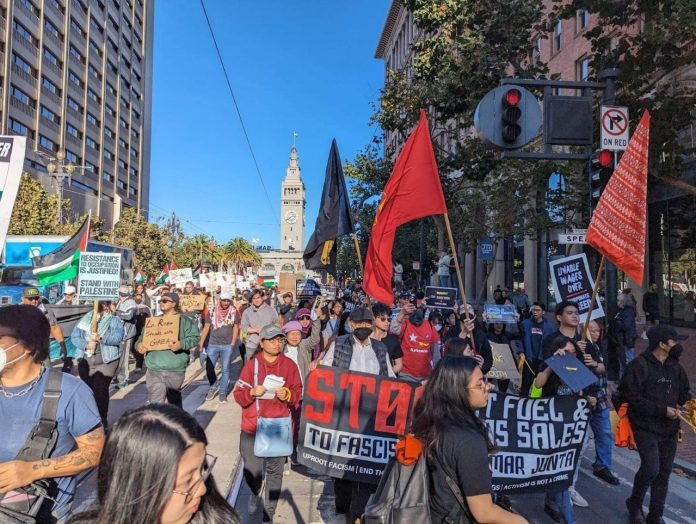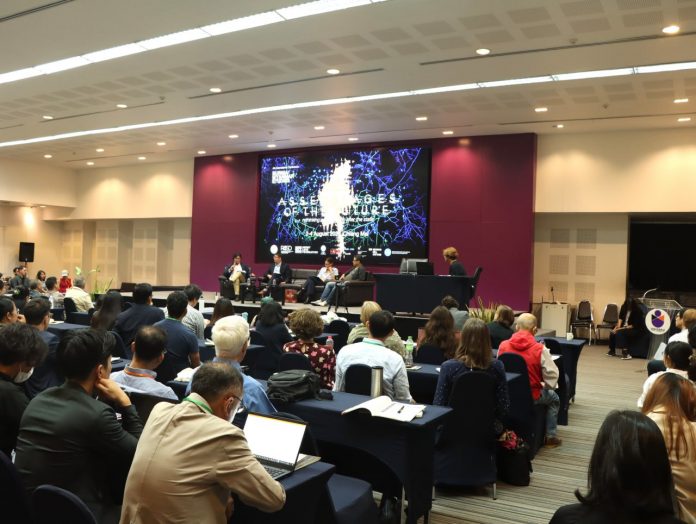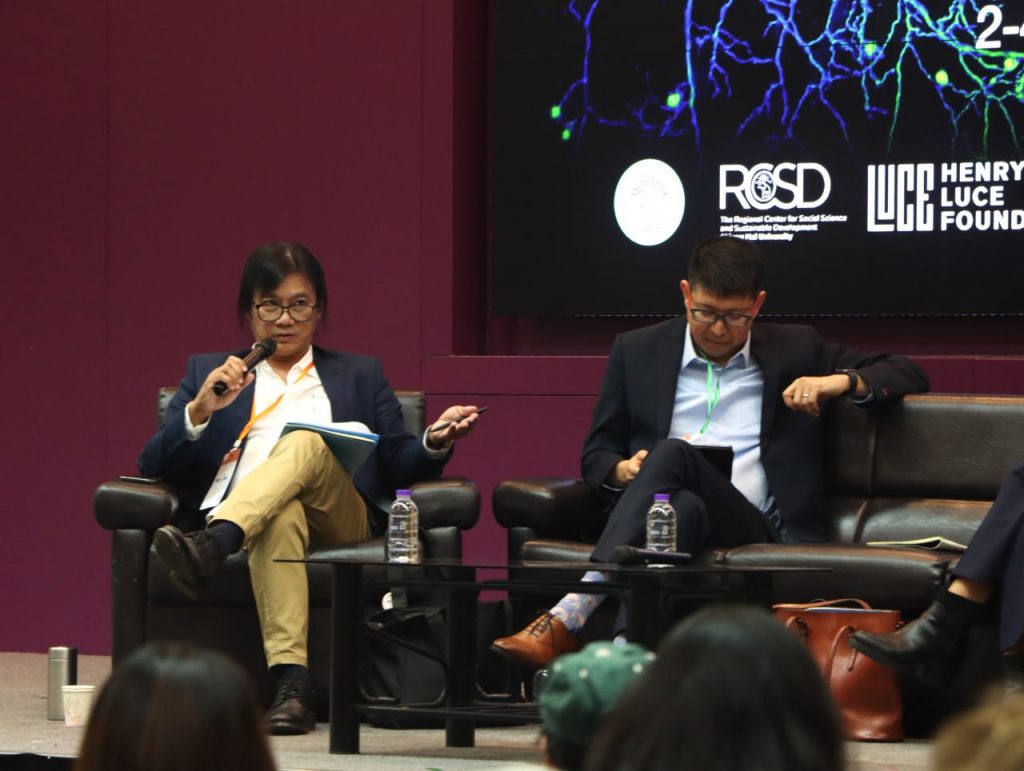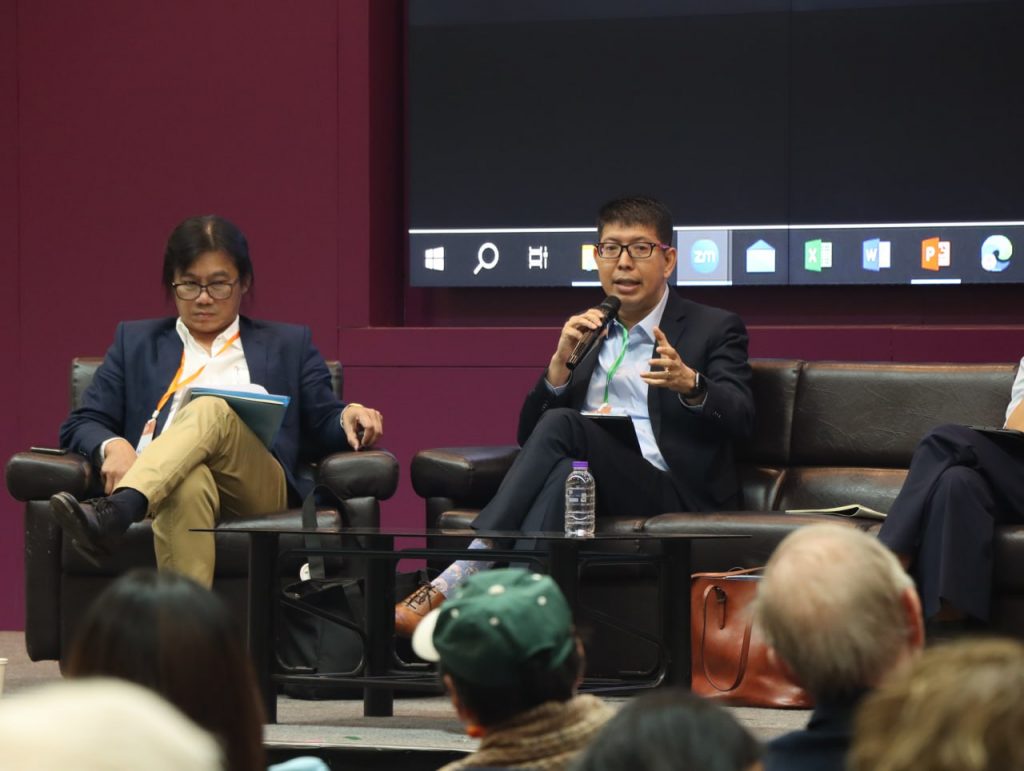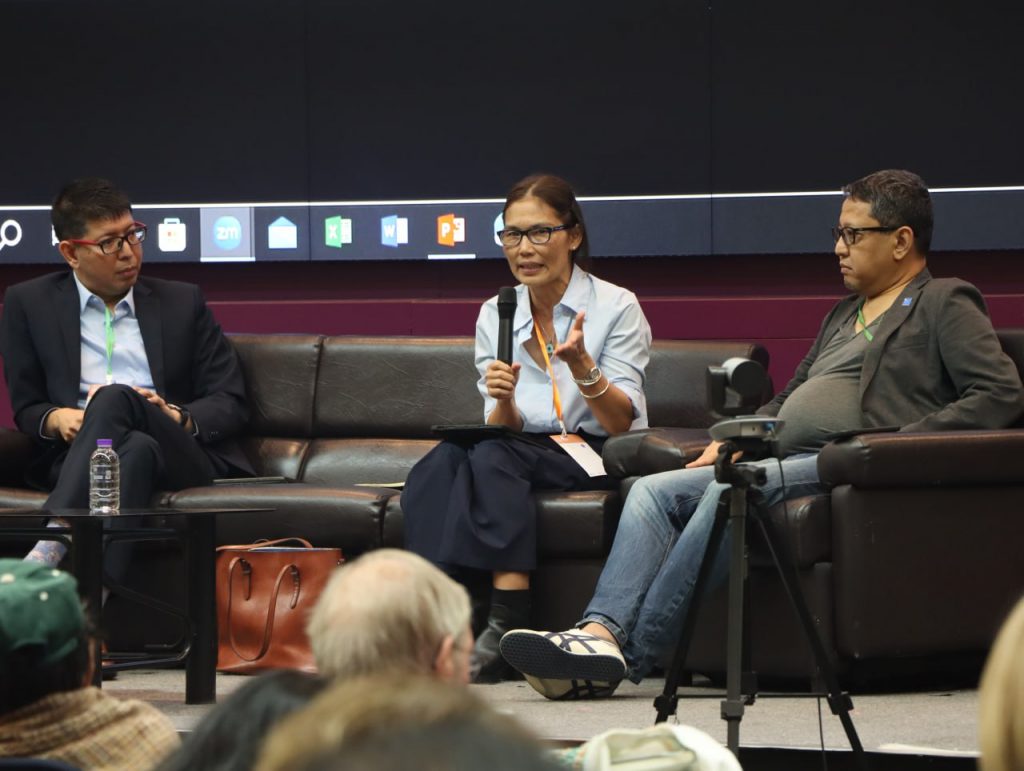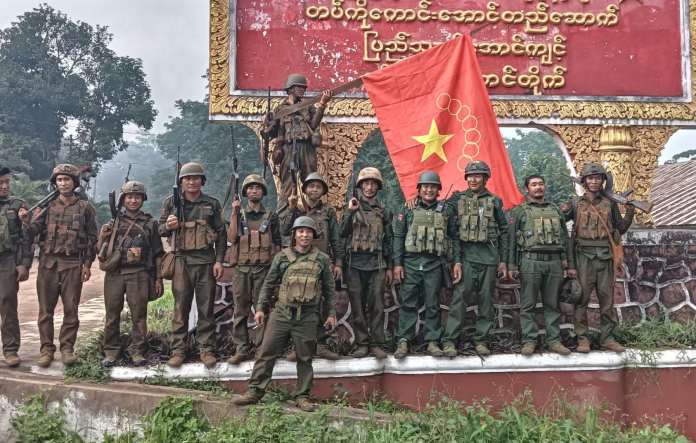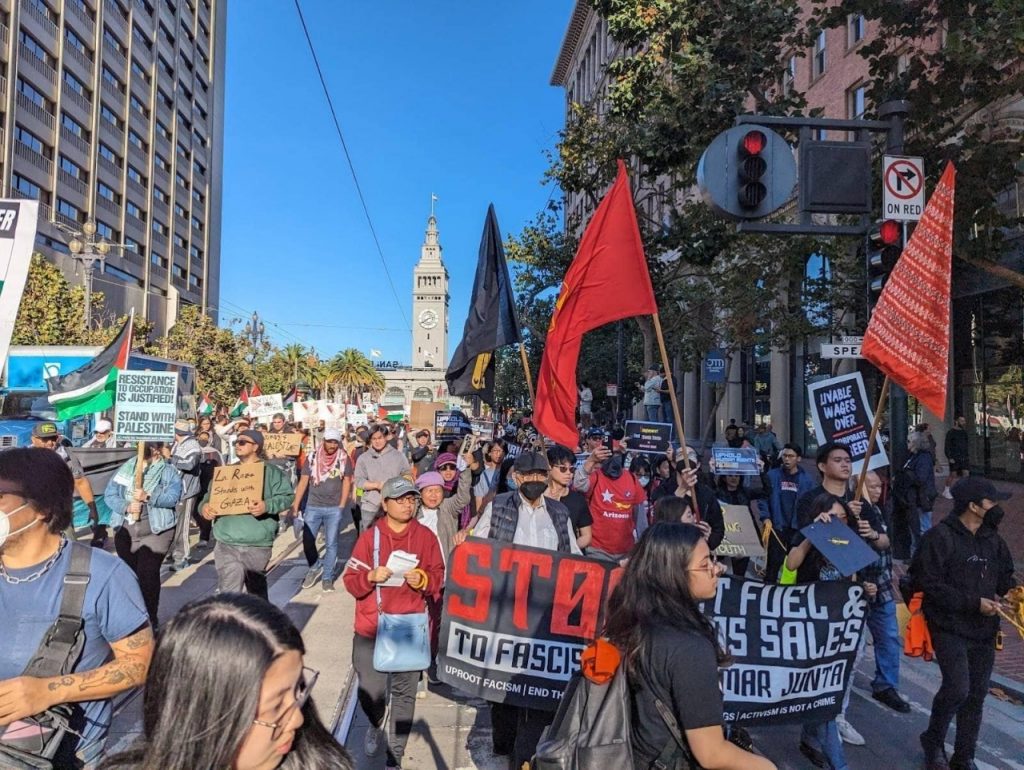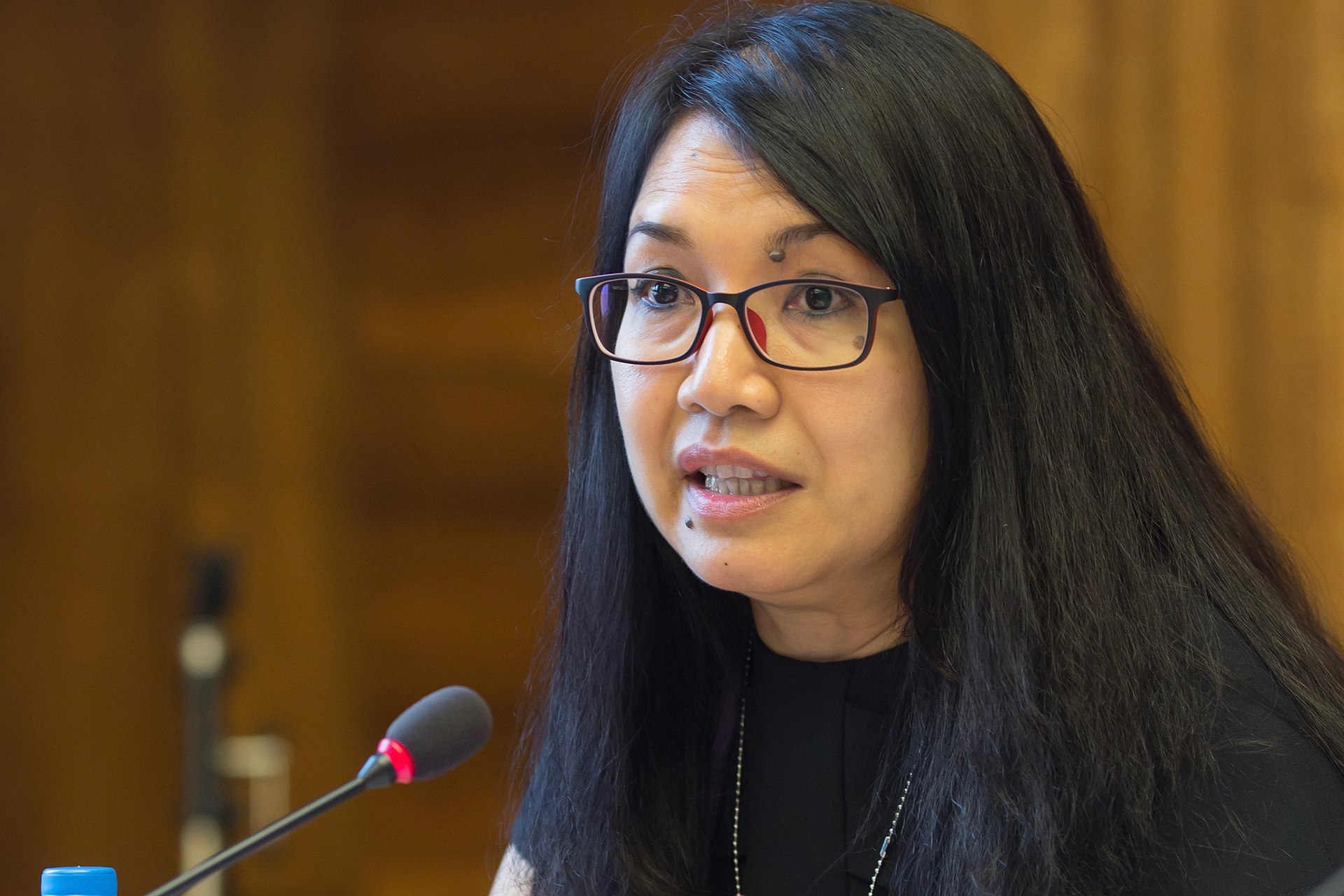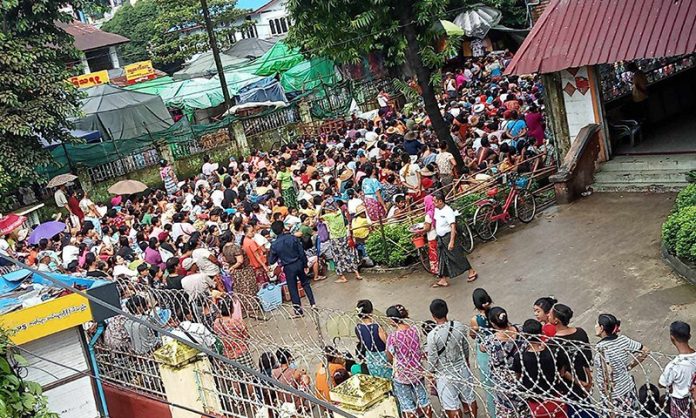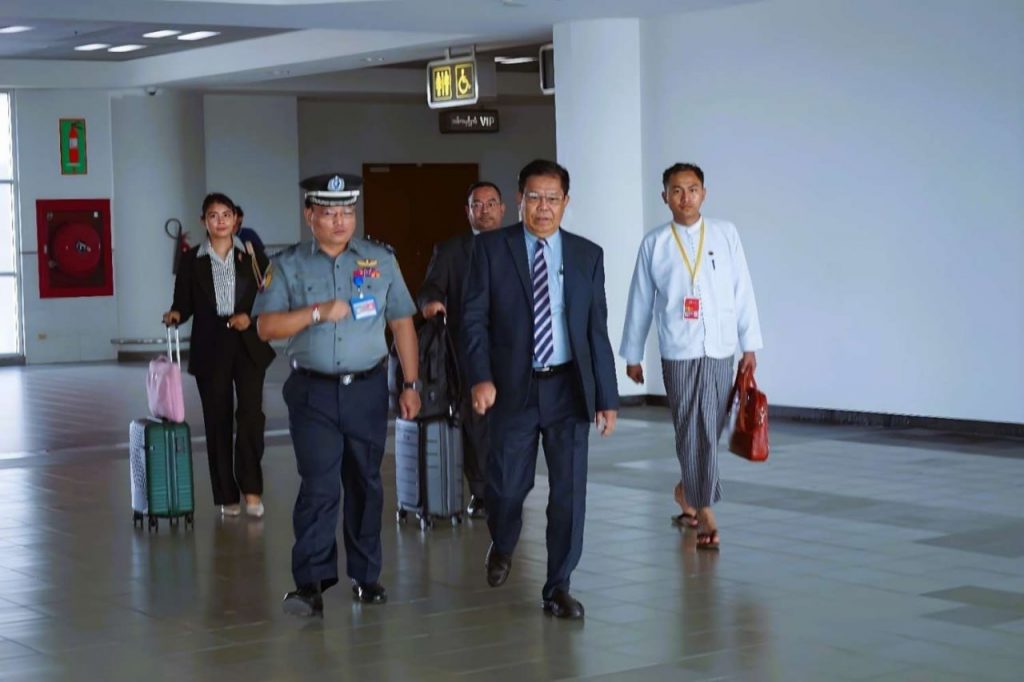Guest contributor
Khin Ohmar
The chaos that has emerged from the Spring Revolution’s efforts to dismantle the Myanmar military junta is the necessary entry point for genuine stability based on human security, and the only pathway towards achieving sustainable peace. The current chaos has created myriad opportunities for a sustainable transformation based on peaceful coexistence while ending the military’s tyranny. However, there is the potential that the chaos could become a disaster, further entrenching violence and oppression. At this point in the revolution, it is up to our resistance movements to decide which way we will go. Can we act together to seize this moment of reckoning? Or will we allow internalization of the military’s divide-and-rule mentality to threaten the cooperative nation-building mindset that has emerged from the Spring Revolution, which is essential for a federal democratic future based on equal power-sharing? The time to decide and act is now.
Framing the current chaos
On this August 8, we mark 36 years that the people of Myanmar have resisted military dictatorship in the name of democracy. In all these years we’ve gained a clarity of focus, of purpose, and of solidarity. When we students took to the streets in 1988, we had a clear objective to end military rule, but we didn’t have a unified vision of what we wanted to achieve. People like myself knew we needed freedom and better governance, but we didn’t have a complete understanding of the layers of discrimination and persecution built into the Burman Buddhist dominated system, which had entrenched the historical grievances of ethnic and religious communities. The ethnic resistance along Myanmar’s borders had been fighting for self-determination for decades prior to the 1988 uprising. But the initial demands of our 8888 democracy movement didn’t incorporate their political aims of self-determination and equality. It wasn’t until we fled into their territories and started to build relationships that our objectives became more aligned – to establish a genuine federal democratic union. Over time, strategic political and military alliances were formed, including inter and intra-ethnic consultations and the drafting of federal and state constitutions. But that movement for democracy and ethnic equality did not manage to dismantle the centralized military system. Until now.
The Spring Revolution which rose up nationwide in 2021 outright rejecting the military’s illegal coup attempt has been different. Genuine federal democracy has been a unifying vision since the beginning. The youth have boldly said, we will never allow you to govern us or rule us. While the vision of the youth-led Spring Revolution and the political objectives, strategies and approaches of the long-standing ethnic resistance have not been in complete alignment, there has been more effective collaboration. The nationwide resistance has organized around the Civil Disobedience Movement (CDM), People’s Defense Forces (PDFs) and Ethnic Resistance Organizations (EROs), as well as countless community organized non-violent actions. Now Myanmar has the greatest chance to finally overcome military rule and build for a sustainable future because of the coming together of ethnic and religious groups, classes, genders, and generations with a clear purpose and objective.
There has been resistance against military rule in Myanmar for decades, but it has never been as inclusive and coordinated as what we have seen since the military’s attempted coup of 2021. The strategies, roadmaps and agendas of the Spring Revolution and the EROs in their collaboration have been the major driving force causing the collapse of the military-dominated centralized system. That collapse is the only path to a sustainable solution to peaceful coexistence of Myanmar’s peoples. Paradoxically, the ensuing chaos is necessary for true stability based on human security. It creates the possibility to address the decades-long suffering of the people, decades-long oppression, persecution and violence of the military.
Chaos creates opportunities for communication, for solidarity, and for long-term transformation. There are many factors in the Spring Revolution that contribute to that possibility. But that potential can easily be undermined by local or international actors vying for power and control, with disastrous consequences. At the same time, the military who have held onto power by force and violence for three generations will continue to create chaos for their own benefit as they have done successfully in the past. This essay highlights both the opportunities in this current context which can positively contribute to peaceful coexistence, as well as the threats that can derail the collective vision from federal democracy and further entrench the violence, oppression and suffering the people of Myanmar have endured for far too long.
Chaos as an entry point to opportunity
The Spring Revolution has initiated an ideological transformation.
Politically, a key difference between our movement in 1988 and this young generation is that they have been exposed to the world. Their thinking is progressive, and the movement is intergenerational in a way we could not have in our time. The Spring Revolution is a massive, creative and progressive movement for structural change.
In our time, we said, ‘end the military regime, end the military dictatorship’. But we couldn’t and didn’t articulate that the military dictatorship is actually held up by misogyny, patriarchy, ethnic and religious oppression; and gender discrimination and non-inclusivity, including the exclusion of minorities and marginalized groups, like the LGBTQIA+ community, and people with disabilities.
With this intersectional lens, the current movement is not only looking to end the military dictatorship, but all dictatorships and oppression. That means any government, whether military or not, including political parties like the National League for Democracy (NLD). If they act as authoritarians, they won’t be accepted. It has been conceptually transformative. Human rights values – principles of inclusion, equality, equity, non-discrimination – form the basis of the Spring Revolution. The Spring Revolution has helped the people of Myanmar become conscious that transformation of the society based on human rights values is achievable, as long as it is rooted in a commitment to solidarity and action and doesn’t remain mere rhetoric.
One of the ways this ideological shift in consciousness has been apparent was the too long delayed recognition by activists, some civil society groups and the National Unity Government (NUG) of the common humanity of the Rohingya – that they have a right to life and to their identity. They recognize that the genocide of 2017 followed generations of persecution at the hands of the same military the revolution is working to dismantle. There were campaigns to apologize to the Rohingya people for the abhorrent lack of solidarity and support to their plight in 2017, and intentions towards greater collaboration among civil society groups and Rohingya representation in the people’s government. Efforts at apologies are clearly not enough to address the egregious oppression and violence the Rohingya have faced – it is but a first step. Accepting and atoning for one’s own wrongdoing is key to reconciliation. At a societal level, it must be followed by the visible representation of and leadership by marginalized groups to lay the foundation for a new society, a new country that is inclusive with justice and accountability, with ethnic and gender equality.
The leadership role of women
One of the biggest differences between the 1988 movement and the Spring Revolution has been women’s leadership and representation. Since the beginning, it’s been part of the consciousness of the current movement, whereas in my time, we women were largely excluded from leadership and decision-making. But from our movement in exile since the 1990s, and inside the country during the 10 years of opening, there were lots of human rights trainings, awareness on gender equality, workshops on women’s participation in politics and women in leadership, awareness of feminism – these shifted the consciousness of the country and made significant contributions to the Spring Revolution. While women in my time faced a lot of family and peer pressure, discouraging and judging our rightful participation in politics, I see that in the Spring Revolution there is more peer support, including from male counterparts, indicating a social shift.
Another example of the critical thinking that has underpinned the Spring Revolution was the htamein revolution, with htameins – women’s traditional sarongs – being used as flags, to create security barricades, and young men wrapped them around their heads as a symbol of women’s power. Many in the older generation still hold on to their belief in the superior power – the hpone – of men, but young men were willing to challenge that thinking. From the beginning of the protests, women’s visibility and leadership was accepted and recognized. By challenging gender norms and traditions, people are able to create new forms of partnership and alliances, capitalizing on combined strengths and strategies.
The sustained Civil Disobedience Movement (CDM)
The NUG states that over 400,000 people have joined the CDM since its initiation in February 2021, including civil servants in health, education, and governance, private sector workers, students, and even police and military personnel. Without this essential workforce and support, the centralized institutions, administration and ministries cannot function. When civil servants from all sectors continue to resist and refuse to work under the military, it severely limits both the capacity, and importantly, the legitimacy, of the central system that the military tried to take over. While the weakening of the pillars maintaining the central system may not be as visible as the takeovers of towns, townships and cities by armed resistance, it has been and continues to be a critical element in preventing the military from taking over the country and a significant force in the revolution’s efforts to dismantle the military’s decades-long grip on power and control.
Strengthening alternative systems
Key to the strength of the CDM strategy has been the highly skilled and experienced civil servants joining the revolution and contributing to the establishment and development of alternative and parallel administrative systems. In the ethnic states, the Ethnic Resistance Organizations (EROs) have had their own systems of government in place and have been responsible for the provision of essential social services, including education and healthcare, to different degrees for decades. The CDM also includes a sizeable number of people from ethnic nationalities who were part of the central system and who are now contributing to local administration and service provision. Thus, the NUG and EROs have functioning workforces throughout the country who are now strengthening localized peripheries. The CDM’s efforts to build alternative administrative systems in the central part of the country and contribute to the structures already established in ethnic areas demonstrates the way that strong local governance could work under a truly federal system.
Coordinated resistance
Strategic and coordinated resistance is causing the collapse of the central military system. When the civil servant workforce left, greatly weakening the central institutions, they strengthened the movement as they have contributed their skills and experience to build parallel systems. At the same time, the EROs and the People’s Defense Force (PDF) have coordinated, creating nationwide offensives that have further weakened the military and its control over the central system. The localized but joint efforts have led to town and village tract takeovers and central military withdrawals or surrender at unprecedented levels. Meanwhile, civil society has played instrumental roles in: advocating and campaigning for international solidarity and support for the movement and to take action against the military and hold them accountable to international law; strengthening local administrations; service provision and humanitarian aid. The Myanmar diaspora has greatly contributed to fundraising for the NUG and humanitarian assistance, as well as advocacy and campaigns to their respective countries’ governments on policy change in support of the movement.
The strengths of the Spring Revolution are formidable, and the possibility of transformative change is within reach. But the chaos in the current context can also lead to disaster if these strengths are not catalyzed and acted upon. The potential for disaster, and ways forward to avoid it, are addressed in part two.
Khin Ohmar is a Myanmar human rights activist who was involved in organizing the 1988 nationwide pro-democracy uprising. She is also the founder of Progressive Voice, a Myanmar human rights organization..
DVB publishes a diversity of opinions that does not reflect DVB editorial policy. We’d like to hear what you think about this or any of our stories: [email protected]


